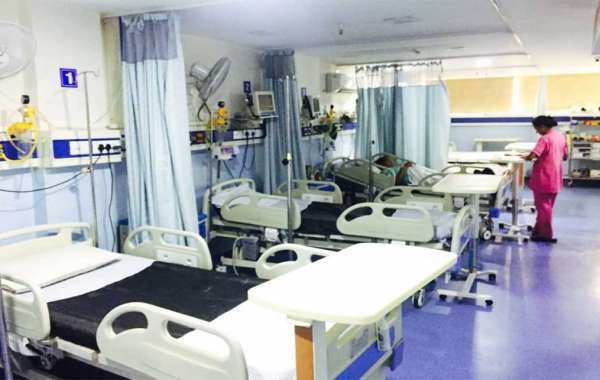Cardiac arrest, a sudden loss of heart function, is a life-threatening condition that can occur unexpectedly. While it is often associated with older individuals, it's important to recognize that young adults can also be susceptible to cardiac arrest. Understanding the causes of cardiac arrest in this age group is crucial for prevention and prompt medical attention. In this blog, we will explore the potential causes of cardiac arrest in young adults, highlighting the importance of seeking care from the best hospital in Ballabgarh, Haryana, for comprehensive cardiac evaluation and treatment.
- Inherited Cardiac Conditions:
Several inherited cardiac conditions can lead to cardiac arrest in young adults. These include hypertrophic cardiomyopathy (HCM), arrhythmogenic right ventricular dysplasia (ARVD), Long QT syndrome (LQTS), and Brugada syndrome. These conditions often go undetected until a cardiac event occurs, making proper evaluation by experienced cardiologists essential for early detection and management.
- Structural Heart Abnormalities:
Certain structural abnormalities of the heart, present from birth or acquired later in life, can increase the risk of cardiac arrest in young adults. Conditions such as congenital heart defects, coronary artery anomalies, and valve abnormalities can disrupt normal heart function and trigger a cardiac event. Regular cardiac screenings and evaluation at a reputable hospital can help identify these conditions and allow for timely interventions.
- Coronary Artery Disease (CAD):
While coronary artery disease is often associated with older adults, it can also affect young individuals, especially those with risk factors such as obesity, diabetes, hypertension, and a family history of early-onset heart disease. CAD occurs when the arteries supplying blood to the heart become narrowed or blocked, potentially leading to a heart attack and subsequent cardiac arrest.
- Sudden Cardiac Arrest Syndromes:
Certain conditions, collectively known as sudden cardiac arrest syndromes, can cause cardiac arrest in young adults. These include Brugada syndrome, catecholaminergic polymorphic ventricular tachycardia (CPVT), and Wolff-Parkinson-White (WPW) syndrome. These syndromes often involve abnormal electrical activity in the heart, leading to dangerous arrhythmias and cardiac arrest.
- Substance Abuse and Stimulant Use:
Illicit drug use, particularly stimulants like cocaine or amphetamines, can significantly increase the risk of cardiac arrest in young adults. These substances can cause abnormal heart rhythms, increased blood pressure, and damage to the heart muscle, all of which can contribute to sudden cardiac arrest.
- Commotio Cordis:
Commotio cordis is a rare but potentially fatal condition caused by a sudden impact to the chest, typically during sports activities. It can result in an abnormal heart rhythm that leads to cardiac arrest. This emphasizes the importance of appropriate safety measures and protective equipment when engaging in physical activities.
Conclusion:
While cardiac arrest is often associated with older individuals, young adults can also experience this life-threatening condition. Understanding the causes of cardiac arrest in this age group is crucial for prevention and timely medical intervention. If you or a loved one are at risk or have experienced cardiac arrest, it is essential to seek care from the best hospital in Ballabgarh, Haryana, for a comprehensive cardiac evaluation, diagnosis, and treatment. Experienced cardiologists and advanced cardiac facilities can provide the necessary expertise to manage inherited cardiac conditions, structural abnormalities, coronary artery disease, sudden cardiac arrest syndromes, and other contributing factors. Remember, early detection and appropriate management are key to reducing the risks associated with cardiac arrest in young adults.










